第4章 LOST FACE(4)
In the silence that followed, the dreary northland scene faded before him, and he saw once more his native land, and France, and, once, as he glanced at the wolf-toothed girl, he remembered another girl, a singer and a dancer, whom he had known when first as a youth he came to Paris.
"What do you want with the girl?" Makamuk asked.
"To go down the river with me." Subienkow glanced over her critically. "She will make a good wife, and it is an honour worthy of my medicine to be married to your blood."
Again he remembered the singer and dancer and hummed aloud a song she had taught him. He lived the old life over, but in a detached, impersonal sort of way, looking at the memory-pictures of his own life as if they were pictures in a book of anybody's life. The chief's voice, abruptly breaking the silence, startled him "It shall be done," said Makamuk. "The girl shall go down the river with you. But be it understood that I myself strike the three blows with the axe on your neck."
"But each time I shall put on the medicine," Subienkow answered, with a show of ill-concealed anxiety.
"You shall put the medicine on between each blow. Here are the hunters who shall see you do not escape. Go into the forest and gather your medicine."
Makamuk had been convinced of the worth of the medicine by the Pole's rapacity. Surely nothing less than the greatest of medicines could enable a man in the shadow of death to stand up and drive an old- woman's bargain.
"Besides," whispered Yakaga, when the Pole, with his guard, had disappeared among the spruce trees, "when you have learned the medicine you can easily destroy him."
"But how can I destroy him?" Makamuk argued. "His medicine will not let me destroy him."
"There will be some part where he has not rubbed the medicine," was Yakaga's reply. "We will destroy him through that part. It may be his ears. Very well; we will thrust a spear in one ear and out the other. Or it may be his eyes. Surely the medicine will be much too strong to rub on his eyes."
The chief nodded. "You are wise, Yakaga. If he possesses no other devil-things, we will then destroy him."
Subienkow did not waste time in gathering the ingredients for his medicine, he selected whatsoever came to hand such as spruce needles, the inner bark of the willow, a strip of birch bark, and a quantity of moss-berries, which he made the hunters dig up for him from beneath the snow. A few frozen roots completed his supply, and he led the way back to camp.
Makamuk and Yakaga crouched beside him, noting the quantities and kinds of the ingredients he dropped into the pot of boiling water.
"You must be careful that the moss-berries go in first," he explained.
"And--oh, yes, one other thing--the finger of a man. Here, Yakaga, let me cut off your finger."
But Yakaga put his hands behind him and scowled.
"Just a small finger," Subienkow pleaded.
"Yakaga, give him your finger," Makamuk commanded.
"There be plenty of fingers lying around," Yakaga grunted, indicating the human wreckage in the snow of the score of persons who had been tortured to death.
"It must be the finger of a live man," the Pole objected.
"Then shall you have the finger of a live man." Yakaga strode over to the Cossack and sliced off a finger.
"He is not yet dead," he announced, flinging the bloody trophy in the snow at the Pole's feet. "Also, it is a good finger, because it is large."
Subienkow dropped it into the fire under the pot and began to sing.
It was a French love-song that with great solemnity he sang into the brew.
"Without these words I utter into it, the medicine is worthless," he explained. "The words are the chiefest strength of it. Behold, it is ready."
"Name the words slowly, that I may know them," Makamuk commanded.